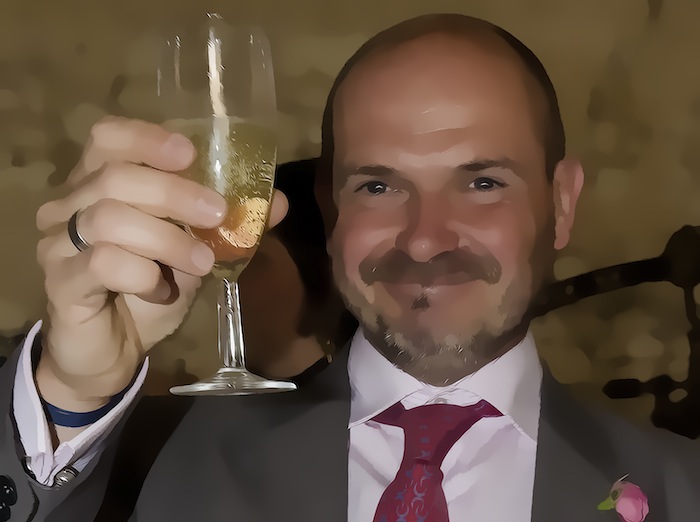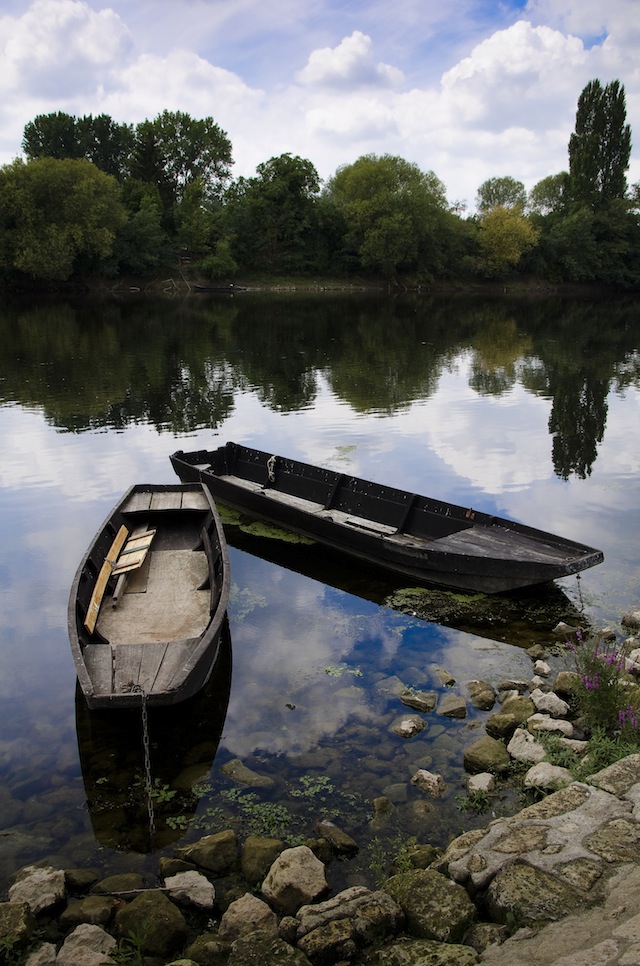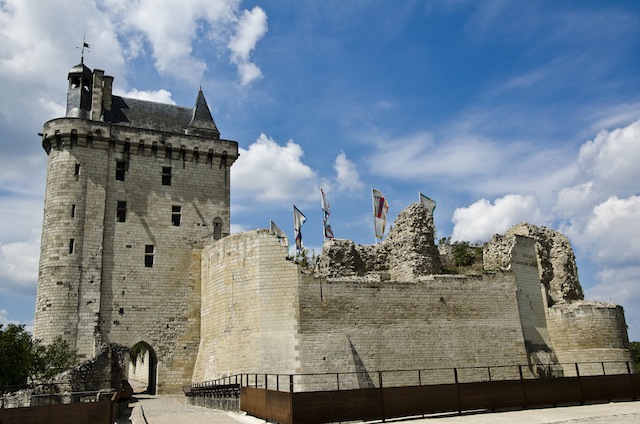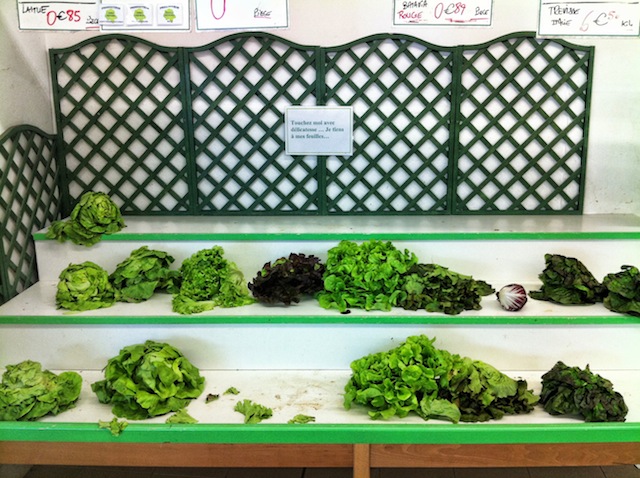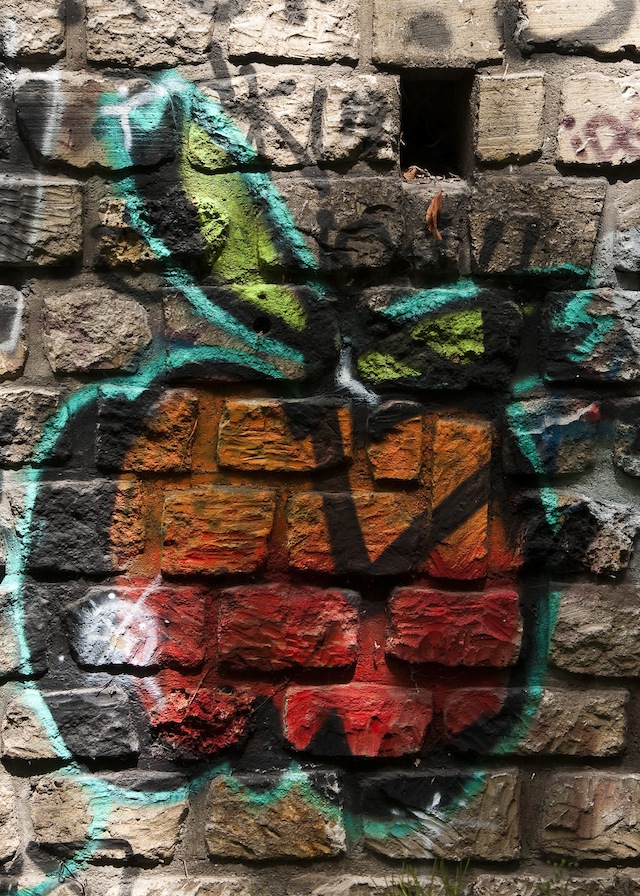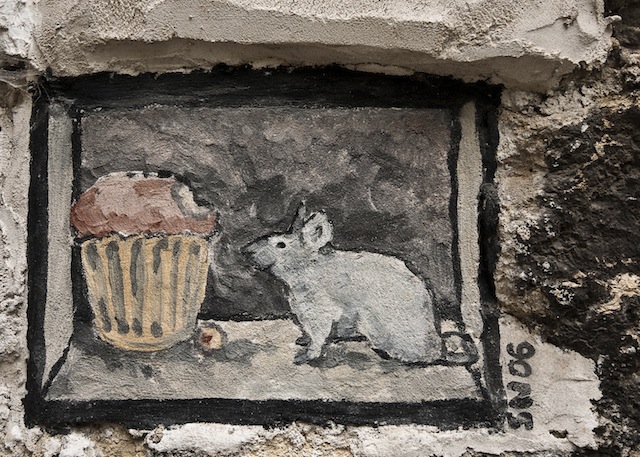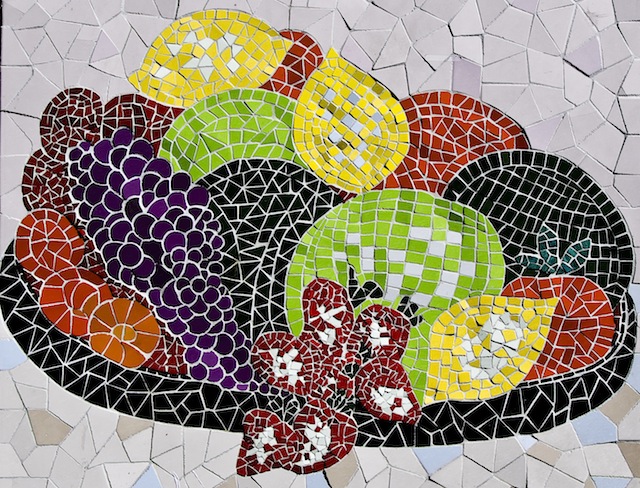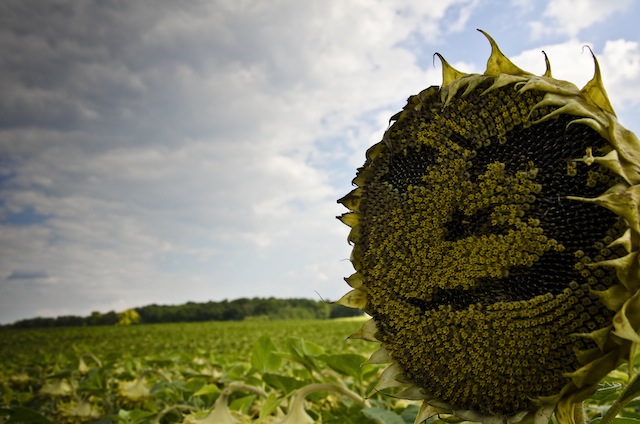Voices: Wedding Day
 08.27.2011
08.27.2011 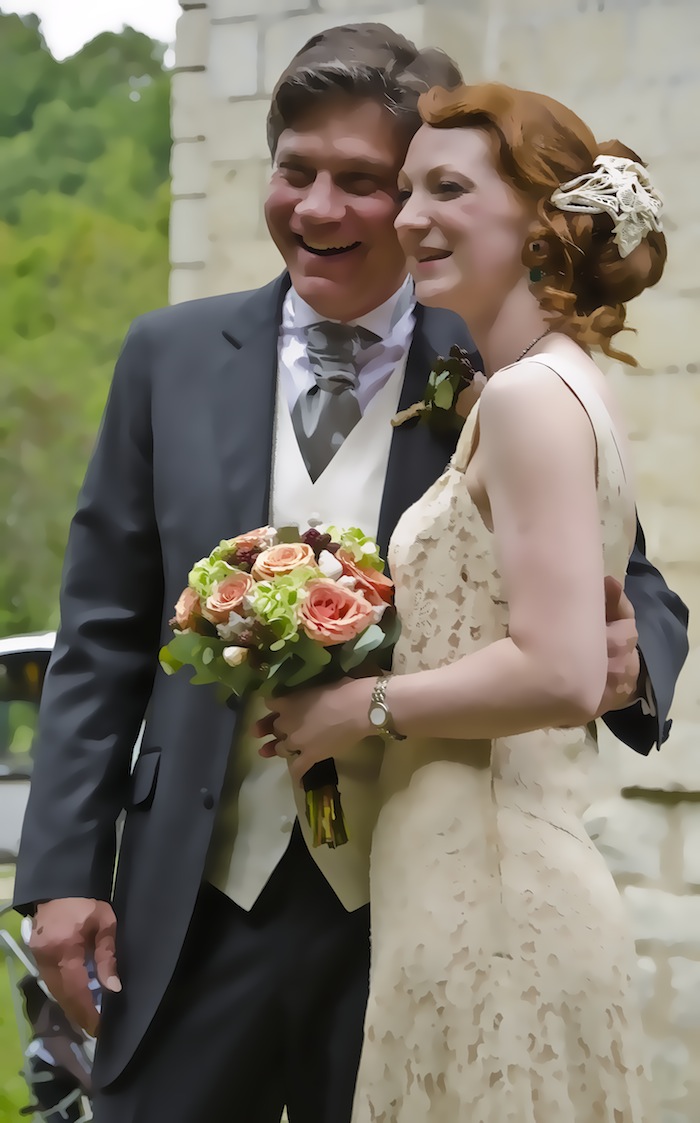
It is difficult to write non-fiction. By that I mean, I heard many compelling stories the day of Porter and Louise’s wedding. And their story alone is worth hearing in detail.
But I cannot tell you any of these stories without being indiscreet.
Porter and Louise were married amid the scaffolds in an eleventh century church, Notre Dame de Rigny, which Porter’s Birmingham, Alabama family is helping to restore.
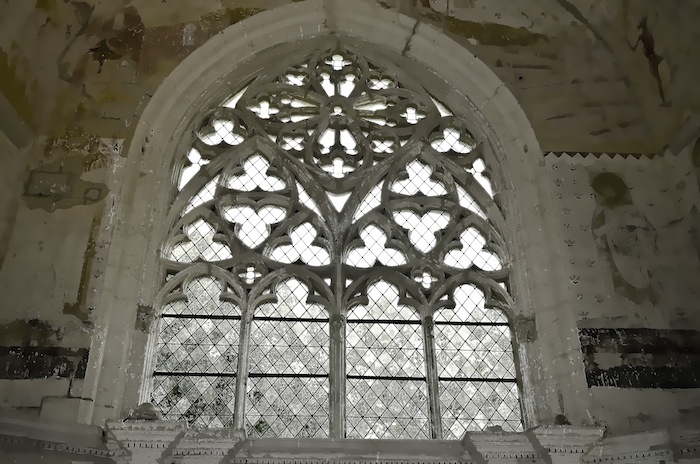
This Notre Dame, built on an earlier eighth century church, was one of the stops on the pilgrimage route to Santiago de Compostela in Spain. It was the church where King Louis XI worshipped when he wasn’t slaughtering deer and boar in the royal forest of Chinon.
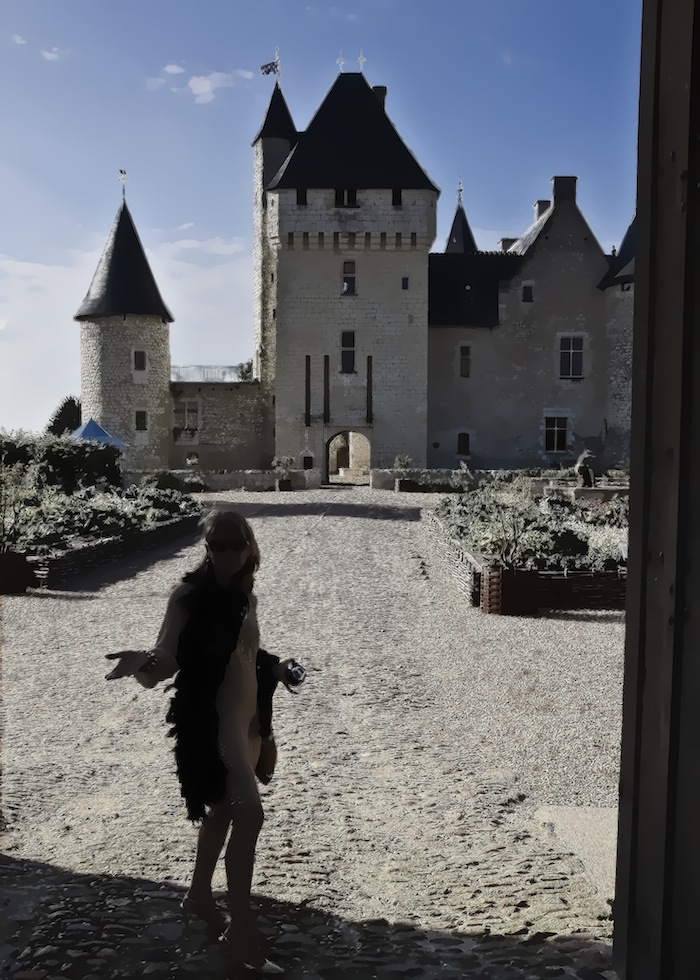
Their wedding dinner was held in a fairy tale castle, Chateau du Rivau.
Ah, the splendor of the wedding festivities. The bride and groom glowed. If you knew them, or even if you simply glimpsed them for the first time, you’d see that it was a marriage of kindred souls, of true love.
But that story is theirs to tell. I couldn’t do it justice in one short journal post.
What I wish I could tell you are the stories I heard from the wedding guests. Before the wedding, during the ceremony, on the bus to the wedding dinner, and at the chateau that night.
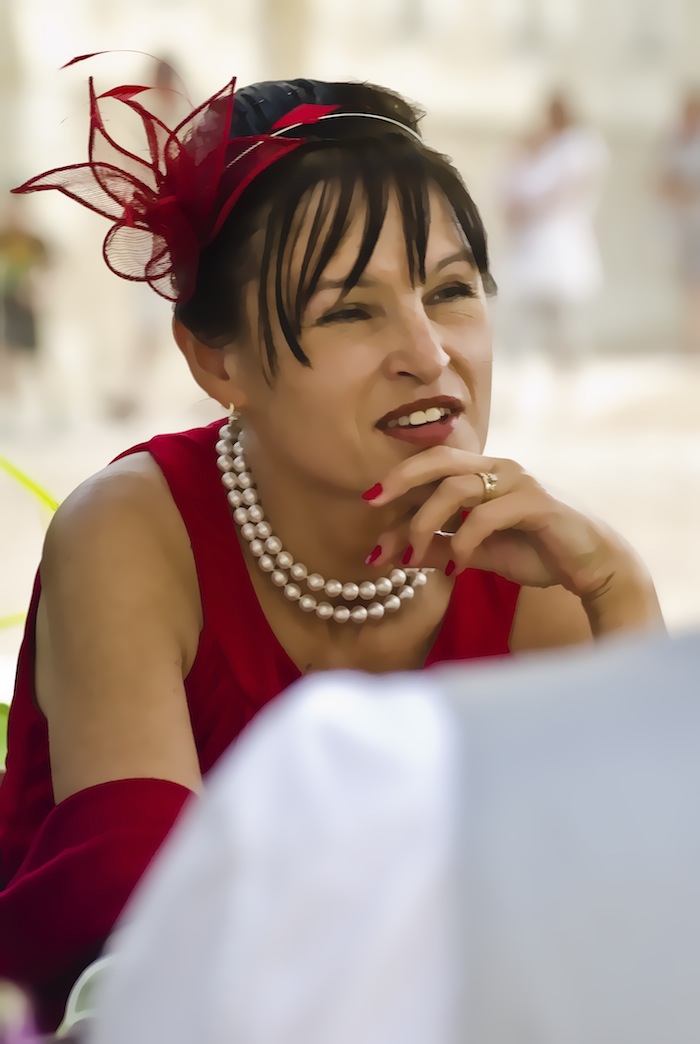
I’m tempted to turn back to fiction, which puts on clothes and names that disguise its origins, and allows you to say almost anything, just as the wedding guests, in donning vintage clothes, freed themselves to tell stories about their twenty-first century selves.
However, I have an agreement with you here on Paris Play. So I will simply weave some snippets of voices that linger in my mind since I heard them on the wedding day.
Voice of a man to the husband of a couple before taking their photos: “Put on your glasses, it’s sexier.”
The voice of the pastor:
Père…[c]est toi le Seigneur de notre passé,
de notre présent et de notre avenir.
C’est de toi que vient toute bénédiction.”
(Father… you are the Lord of our past, our present and our future. It’s from you that all blessing comes.)
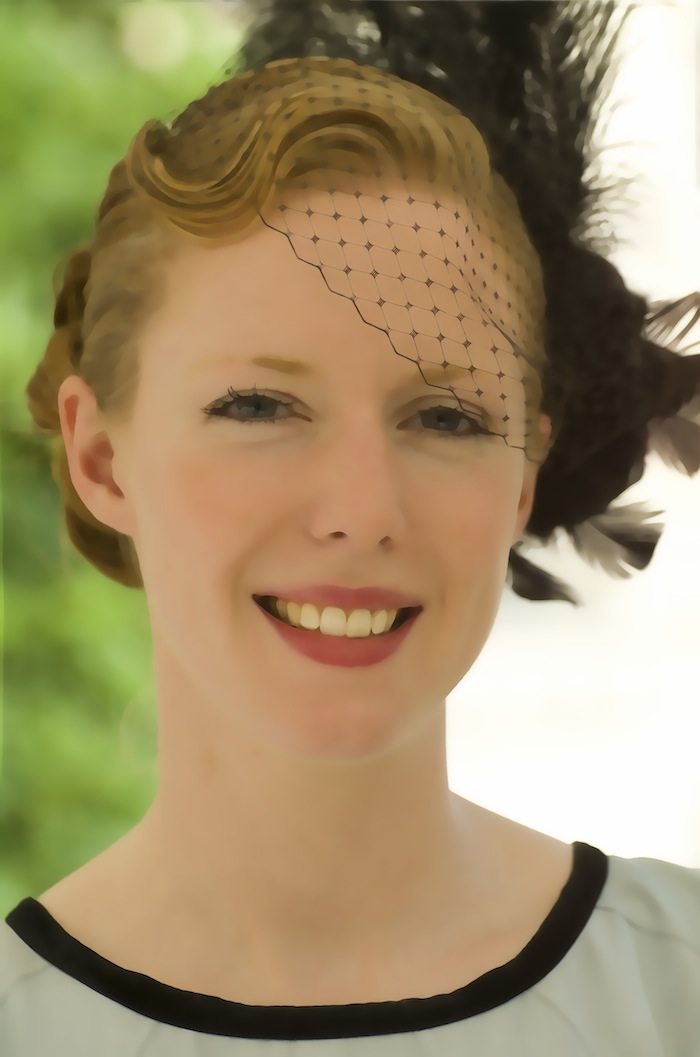
The inner voice of a woman: Père, Père, Père, and the son and the holy ghost. Where are the women in this spiritual vision which calcified long ago into a religion? In ancient times, vision came from the muses, all of them women. Where are the goddesses?
The voice of moonlight striking water on a warm summer night, Claire de Lune, the voice of Debussy coming through piano keys played by the groom’s oldest daughter.
The voice of the bride and groom’s two-year-old daughter, laughing as she races around in front of the altar.
“Nous croyons en Dieu le Père.
Nous croyons qu’il a créé le monde
Pour l’homme et la femme.”
(We believe in God the Father. We believe that he created the world for man and woman.)
Where is there room in this creed for the voices of women who love women, and men who love men?
The murmuring voices of the bride and groom as they exchange vows.
The sweet innocence of the pastor’s voice in French.
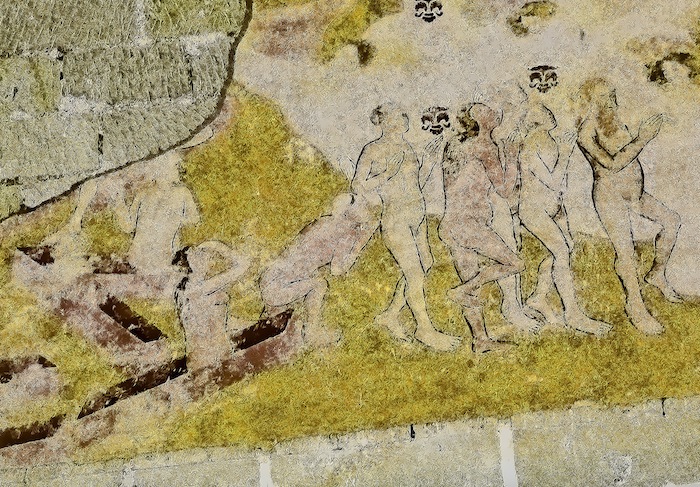
The voices of the naked men and women who climb out of the underworld in a Judgment Day frieze high above the altar. The voices of the dead.
The voice of a man (who is talking to one woman) greeting a second woman outside the door to the church: “Have I ever told you what a fine specimen of a woman you are?”
The voice of a man saying about the groom (whose livelihood is helping people buy and renovate Paris apartments): "Wouldn’t he have to have been married on a construction site?"
The voice of a woman describing how they met: “Come here,” he said. “Come here, so sexy.”
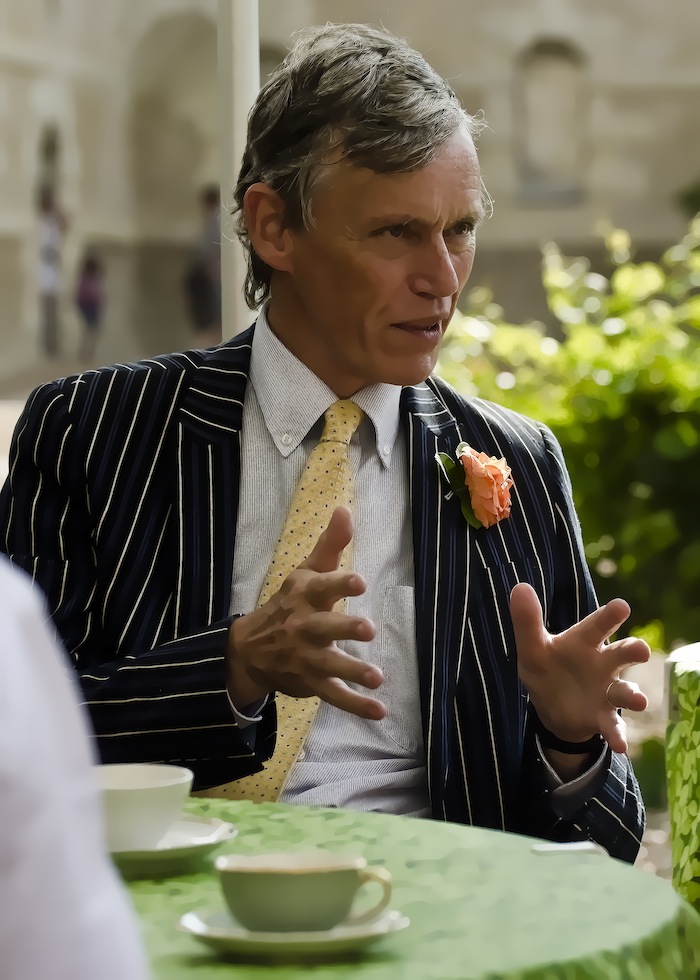
The voice of a woman who has recently moved from Paris to the country, to someone who has just moved to Paris: “How can you live in Paris? How can you? How can you live in Paris? How can you live in Paris?”
Voice of a single woman describing to a wife what her husband just said about her:
“He said to me, ‘I’m looking for my wife.’
And I told him, ‘You can always find another one.’
Do you know what he said?
‘Not like this one, I can’t.’”
Voice of a woman who is newly single after many years of marriage: “One day he said to me, ‘I don’t want to be married to you any more.’ No warning. Out of the blue. I’m still in shock. I’d like to move to Paris, but how would I earn a living there?”
Voice of a man watching his daughter and her husband sip champagne together as the desserts are unveiled:
“I’ve lost a daughter.”
“No, you haven’t,” two women say at once.
“Yes. I have.”
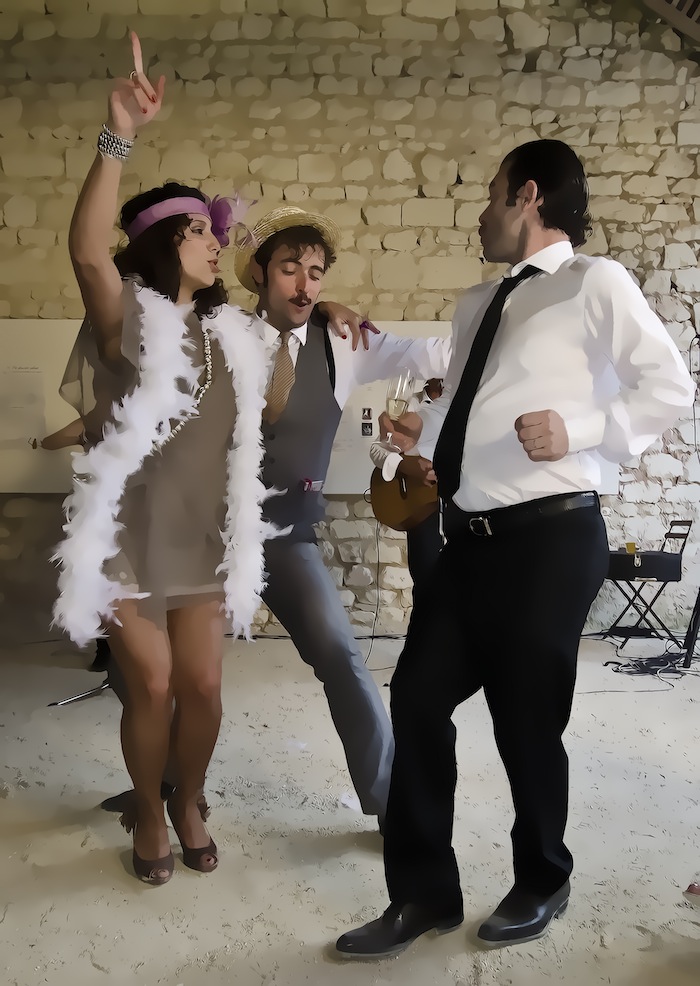
Voice of a woman telling her story of her divorce after a long marriage to an alcoholic: “After the judge heard all of us speak, he said to my husband, ‘You grew up in a good family, you’ve had good fortune in your profession, you have a wife and children who love you, and you’ve thrown it all away. Why? Why have you ruined your life?’”
And I remember the voice of Antonio Machado: “What have you done with the garden that was entrusted to you?”
The Wind, One Brilliant Day
The wind, one brilliant day, called
to my soul with an odor of jasmine.
"In return for the odor of my jasmine,
I'd like all the odor of your roses."
"I have no roses; all the flowers
in my garden are dead."
"Well then, I'll take the withered petals
and the yellow leaves and the waters of the fountain."
The wind left. And I wept. And I said to myself:
"What have you done with the garden that was entrusted to you?"
—Antonio Machado (Translated by Robert Bly)
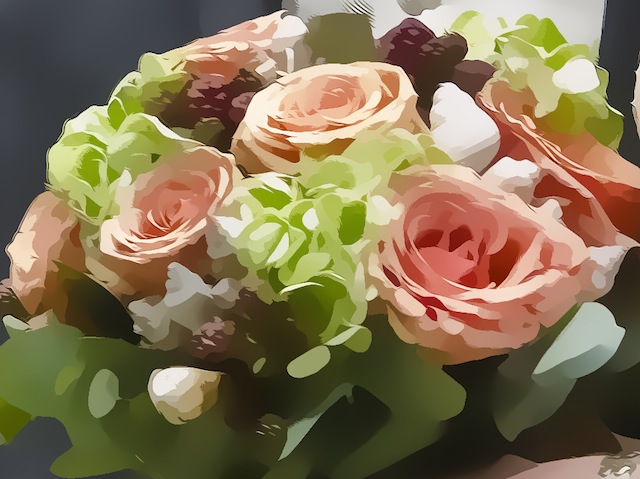
Gods and goddesses,
ancestors and muses,
a prayer for Louise and Porter:
May their garden be fragrant with jasmine and roses.
May they tend it together their whole lives long.
May they blossom.
May they thrive.
